第63章
The infinite variety of the forms and operations of nature, besides tending immediately to awaken and improve the mind by the variety of impressions that it creates, opens other fertile sources of improvement by offering so wide and extensive a field for investigation and research. Uniform, undiversified perfection could not possess the same awakening powers. When we endeavour then to contemplate the system of the universe, when we think of the stars as the suns of other systems scattered throughout infinite space, when we reflect that we do not probably see a millionth part of those bright orbs that are beaming light and life to unnumbered worlds, when our minds, unable to grasp the immeasurable conception, sink, lost and confounded, in admiration at the mighty incomprehensible power of the Creator, let us not querulously complain that all climates are not equally genial, that perpetual spring does not reign throughout the year, that it God's creatures do not possess the same advantages, that clouds and tempests sometimes darken the natural world and vice and misery the moral world, and that all the works of the creation are not formed with equal perfection. Both reason and experience seem to indicate to us that the infinite variety of nature (and variety cannot exist without inferior parts, or apparent blemishes) is admirably adapted to further the high purpose of the creation and to produce the greatest possible quantity of good.
The obscurity that involves all metaphysical subjects appears to me, in the same manner, peculiarly calculated to add to that class of excitements which arise from the thirst of knowledge. It is probable that man, while on earth, will never be able to attain complete satisfaction on these subjects; but this is by no means a reason that he should not engage in them. The darkness that surrounds these interesting topics of human curiosity may be intended to furnish endless motives to intellectual activity and exertion. The constant effort to dispel this darkness, even if it fail of success, invigorates and improves the thinking faculty.
If the subjects of human inquiry were once exhausted, mind would probably stagnate; but the infinitely diversified forms and operations of nature, together with the endless food for speculation which metaphysical subjects offer, prevent the possibility that such a period should ever arrive.
It is by no means one of the wisest sayings of Solomon that 'there is no new thing under the sun.' On the contrary, it is probable that were the present system to continue for millions of years, continual additions would be making to the mass of human knowledge, and yet, perhaps, it may be a matter of doubt whether what may be called the capacity of mind be in any marked and decided manner increasing. A Socrates, a Plato, or an Aristotle, however confessedly inferior in knowledge to the philosophers of the present day, do not appear to have been much below them in intellectual capacity. Intellect rises from a speck, continues in vigour only for a certain period, and will not perhaps admit while on earth of above a certain number of impressions. These impressions may, indeed, be infinitely modified, and from these various modifications, added probably to a difference in the susceptibility of the original germs, arise the endless diversity of character that we see in the world; but reason and experience seem both to assure us that the capacity of individual minds does not increase in proportion to the mass of existing knowledge. (It is probable that no two grains of wheat are exactly alike. Soil undoubtedly makes the principal difference in the blades that spring up, but probably not all. It seems natural to suppose some sort of difference in the original germs that are afterwards awakened into thought, and the extraordinary difference of susceptibility in very young children seems to confirm the supposition.)The finest minds seem to be formed rather by efforts at original thinking, by endeavours to form new combinations, and to discover new truths, than by passively receiving the impressions of other men's ideas. Could we suppose the period arrived, when there was not further hope of future discoveries, and the only employment of mind was to acquire pre-existing knowledge, without any efforts to form new and original combinations, though the mass of human knowledge were a thousand times greater than it is at present, yet it is evident that one of the noblest stimulants to mental exertion would have ceased; the finest feature of intellect would be lost; everything allied to genius would be at an end; and it appears to be impossible, that, under such circumstances, any individuals could possess the same intellectual energies as were possessed by a Locke, a Newton, or a Shakespeare, or even by a Socrates, a Plato, an Aristotle or a Homer.
If a revelation from heaven of which no person could feel the smallest doubt were to dispel the mists that now hang over metaphysical subjects, were to explain the nature and structure of mind, the affections and essences of all substances, the mode in which the Supreme Being operates in the works of the creation, and the whole plan and scheme of the Universe, such an accession of knowledge so obtained, instead of giving additional vigour and activity to the human mind, would in all probability tend to repress future exertion and to damp the soaring wings of intellect.